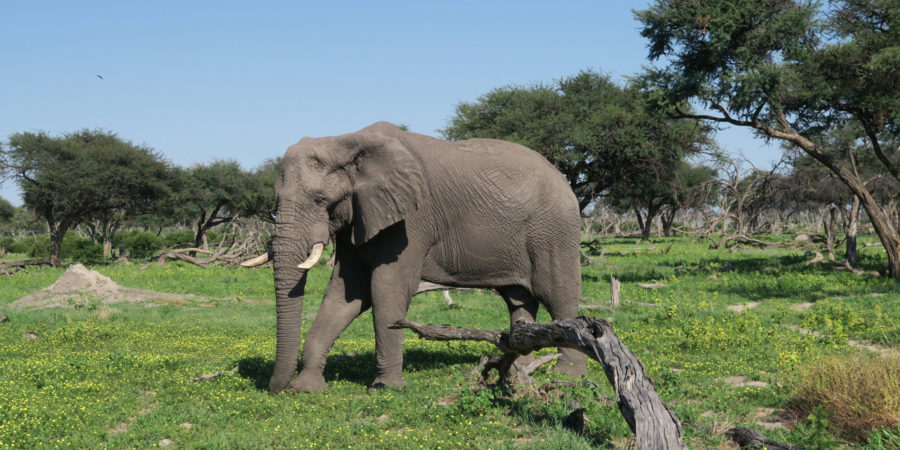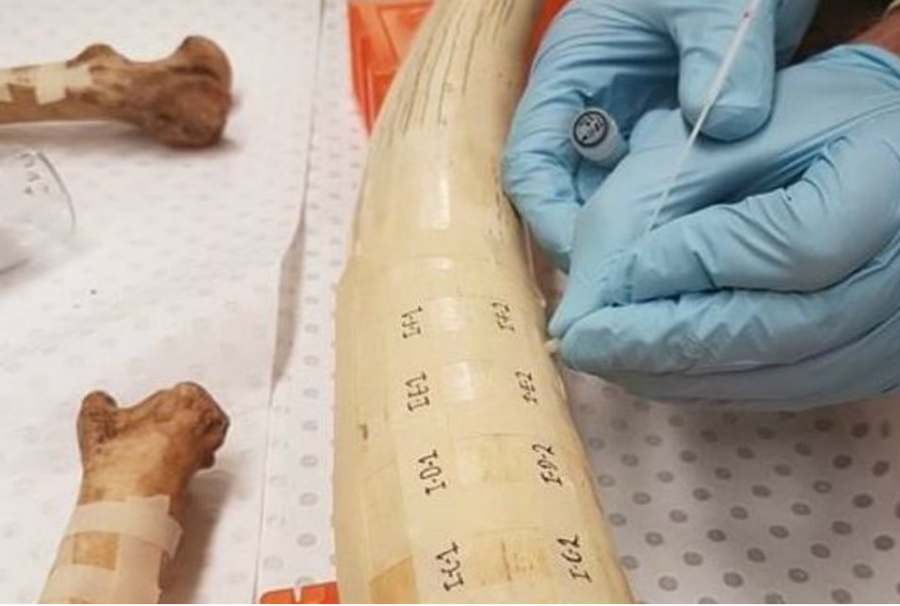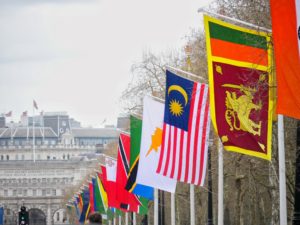20th April 2018 Gaborone, Botswana
Ending wildlife crime across the Commonwealth

In this part of the world, elephants can wander through three different Commonwealth countries before lunch. Their routes are ancient, learned from generations of ancestors, and even a physical border like a river is no challenge to them.
Because they roam across lines on a map, their protection and conservation cannot fall to just one or two countries alone. We need collective engagement and commitment to ensure the survival of these iconic animals and all other endangered species.
Working together with the Commonwealth
The Commonwealth Heads of Government Meeting this week will bring together leaders of some of the key countries involved in wildlife conservation and anti-poaching efforts, as well as transit and demand countries for illegally traded wildlife.

Across the Commonwealth there are already many great programmes and interventions aimed at tackling this crime, but there is always more to do.
Building on the work already underway, ministers will share best practice, highlight concerns and discuss what more we can do together to support countries with endangered wildlife, as well as how we can work better together to dismantle smuggling networks and drive down demand for increasingly rare ivory, rhino horn and pangolin scales.
Our work overseas
The UK is playing a leading role funding activity across the Commonwealth. In southern Africa, working in close partnership with Commonwealth, the UK has funded training for rangers and anti-poaching units, helped create forensic networks and supported prosecutors from across the region with an aim to harmonise wildlife crime prosecutions and penalties.
Many of these interventions are regional, encouraging greater cross border cooperation, interventions and information sharing, to improve the ability to respond to poachers and their networks. CHOGM can help us build on this.

Reducing risk of conflict
However, it’s not just about crime and punishment. Some countries have been very successful in tackling poaching. This has led to different challenges. Elephants are smart, and they and other animals increasingly seek out the safe havens. Here in Botswana we have capacity for about 80,000 elephants – there are around 140,000 in the country now. This puts pressure on land and increases the risk of conflict between people and wildlife. Elephants are beautiful to look at from the safety of a safari jeep, but are a lot less charming when you meet them close up, trashing crops you have spent the last few months carefully tending. So we need to find ways to help communities stay safe, and not just coexist but benefit from the wildlife they are protecting.
Developing eco-tourism
Tourism is potentially one way to do this, as long as local people, and not just big companies, have a share of the revenue. Community based tourism projects, with help and support from their own governments and the international community, can have wide-ranging benefits. Conservation tourism is not just about hospitality. The growing eco-tourism market needs architects and engineers to design and build sustainable camps, green energy and water specialists to ensure minimal impact on the environment, finance directors, marketing professionals and logistics experts. Done in the right way, protecting wildlife can lead to good quality jobs, education and development opportunities.
Creating safe spaces
We also need to think about ways to reduce the burden on countries like Botswana and increase safe spaces for these wonderful animals.
There are already a number of trans frontier conservation areas in the southern African region.

Is there potential to increase these? What support can the rest of us provide?
There are already lots of great ideas out there on what steps we should take. Now is the time to start bringing these ideas together and to make best use of the amazing and diverse resource that is the Commonwealth family. We can make a difference.
Thankyou Wendy. Totally agree. The world needs to step up immediately and put an end to hunting of all animals not just the endangered.
Greed and power are destroying this earth. It has to stop!
We must save Elephants and all Wildlife, we have taken their land to acommadate ourselves, leaving Wild animals with less land to live properly and in peace! These Animals evolved here, before us, so we have to take care of them now, before they become extinct in the Wild! Say NO to Zoo, that would be wrong! #Extinction is not an answer, we, millions of People on Earth love our Wildlife so much! We love and want them here, with us! Losing them is not an option! Thank You! Wendy King!